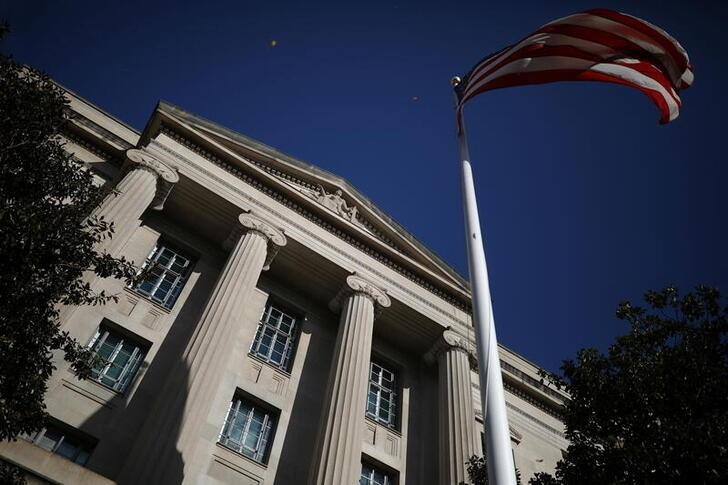By Sarah N. Lynch
WASHINGTON (Reuters) - The U.S. Justice Department on Thursday released a scathing new report that found that prosecutors and sheriffs in Orange County, California, had improperly used a jailhouse informant program in ways that routinely violated the constitutional rights of criminal defendants.
The 63-page report caps a nearly six-year civil rights investigation, known as a "pattern or practice" probe, by the Civil Rights Division into the Orange County District Attorney's Office and the Orange County Sheriff's Department.
The probe, which was started in December 2016, focused on local law enforcement's use of a jailhouse informant program and whether those informants were used improperly to elicit incriminating statements from other criminal defendants.
The Justice Department's report concludes that from 2007 through 2016, Orange County violated criminal defendants' constitutional rights to be represented by counsel, as well as their 14th Amendment due process rights in which prosecutors are required to disclose to them any evidence that is exculpatory and could assist with their defense.
Although the investigation focused on prior misconduct, the report said that Orange County has yet to correct all of the problems.
"Restoring trust in Orange County law enforcement will require recognition and remediation of the harms caused by the law enforcement practices described in this report," the report says.
It adds that although Orange County has taken some steps to better handle its informant program and provide better disclosures to defendants, "more work remains to be done."
"It has been eight years since much of the misconduct came to light," the department added, saying that the district attorney's office "has still not taken adequate steps to ensure that prosecutors understand and carry out their constitutional disclosure obligations."
Orange County Sheriff Don Barnes said he looked forward to the Department Of Justice reviewing his department's current procedures.
"I am confident they will find our current practices have addressed many of their recommendations, and anticipate a prompt and complete resolution to this matter," he said.
In a statement, Orange County District Attorney Todd Spitzer said his office has been willingly cooperating with the investigation, and he noted the county stopped using the jailhouse informant program in 2016.
"Throughout this multi-year investigation, I repeatedly asked the DOJ for input on the numerous reforms I have implemented, including the prohibition of utilizing a jail house informant without the express consent of the elected district attorney," he said.
He added that he also conducted his own outside investigation, and fired a senior prosecutor for failing to disclose information to a defense attorney.

Pattern or practice civil rights probes typically take several years to complete.
While sometimes adverse findings in pattern or practice investigations can lead to litigation, the parties usually try to resolve the concerns first. A department spokesperson said the department is negotiating with Orange County to implement reforms.
